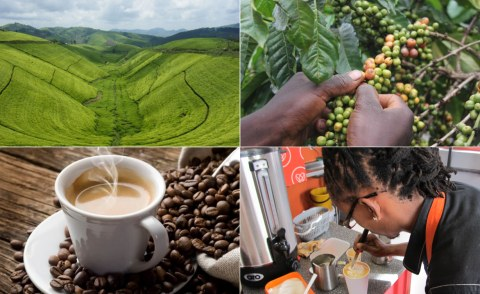By Walcott Aganu
The COVID-19 crisis continues to dominate headlines, and many investors have been understandably rattled. Seeing a drop in stock market values has a way of igniting fear, especially when it’s coupled with a parallel spike in unemployment, especially for developing countries in regions such as Africa with already volatile economies. However, it’s not new to say that these come with the territory when a nation slopes into recession.
An exact definition of a recession is a little tough to pin down. However, most economists agree that a recession occurs when a country’s gross domestic product (GDP) has exhibited at least two consecutive quarters of negative growth. This kind of slump tends to result from an economic slowdown that’s typically accompanied by an uptick in unemployment and a decline in manufacturing and stock prices. Not surprisingly, consumer confidence usually takes a hit.
The Coronavirus pandemic has brought economic activity to a halt worldwide, and most countries in Africa have fallen into recession territory at this point. While Africa’s economic growth was estimated to increase to 3.9% in 2020 and 4.1% in 2021, the coronavirus pandemic impacted the continent’s progress, disrupting regional supply chains and economic activity.
Although Africa leadership and government have done well to stabilize things amidst the economic backlash, the region’s economic growth is expected to slow down. It is worthy of note that 2021 will not be without its unique challenges. However, with the African Continental Free Trade Area agreement (AfCFTA) in action, the global COVID-19 vaccine rollout, and growing venture capital (VC) activity, there is reason to be optimistic about the investment landscape in Africa.
However, after experiencing a decline in economic activity, many companies and individuals find it hard to bounce back; some might have incurred debts during the period. The encouraging news is that whether we’re talking about a pandemic, war or housing crisis, the economy has historically bounced back after past recessions. When the market is soaring, it’s easy to forget what goes up can also come down. But economic slowdown tends to be cyclical, which means that another recession is in the future. Whether it’s fast-approaching or still a far way off, it’s wise to prepare for its eventuality.
If you are considering investing after a recession, one of the factors to focus on is to examine which companies can make safe investments which are usually companies with good cash flow and low debt load.
Here are some recession post-recession investment options or areas to consider:
- Utilities: Utilities provide water, electricity, gas, and other products to industrial and residential areas. The utility sector tends to perform well during a recession as people still patronize these products and services to make them live comfortably. Although utility stocks are less volatile and offer few opportunities for high investment returns, demand for utilities remains high even during a recession, making it a safe investment.
- Health sector: During a downturn economic environment, certain companies or business organizations perform better than others. There are companies or sectors whose demand for goods and services is unaffected by the economic climate. Sectors like healthcare are relatively insensitive to the economic downturn as people still cater to their health regardless of the situation.
- Hard Commodities: Hard commodities are products gotten by mining or extracting from natural resources. Hard commodities include products like gold and silver, considered an opportunity to invest in due to their ability to retain their value even in periods of recession.
- Consumer Staples: During a recession, it is advisable to invest in goods and services that are in constant demand. Some stocks or goods are recession-proof and can still thrive regardless of a decline in economic activity. Consumer staples sectors provide products like household products, beverages, hygiene products, and food items that people rely on every day. Individuals still use consumer staples even when the economy is shaky as they are considered essential commodities for a living. Investing in the consumer staples sector offers a recession offers a safe investment option.
- Undervalued companies: Undervalued companies are performing significantly below what is assumed to be their intrinsic value. Some profitable businesses have future growth potentials. Individuals or investors looking to invest should carry out a careful study to ascertain companies with business plans and strategies that can foster future growth.
Though it majorly hit the world’s economy in 2020, the impact of COVID-19 is still felt in 2021. From running down businesses to causing significant losses and leaving many people to wallow in debt, COVID-19’s effect was unexpected and wildly beyond our imaginations. However, regardless of previous happenings, things will have to go on, and businesses have found a way to deal with the losses. Bouncing back after a recession may bring scepticism about where to invest to avoid incurring a high loss. Adopting an investment strategy that focuses on recession-proof sectors can offer safe investment options.


